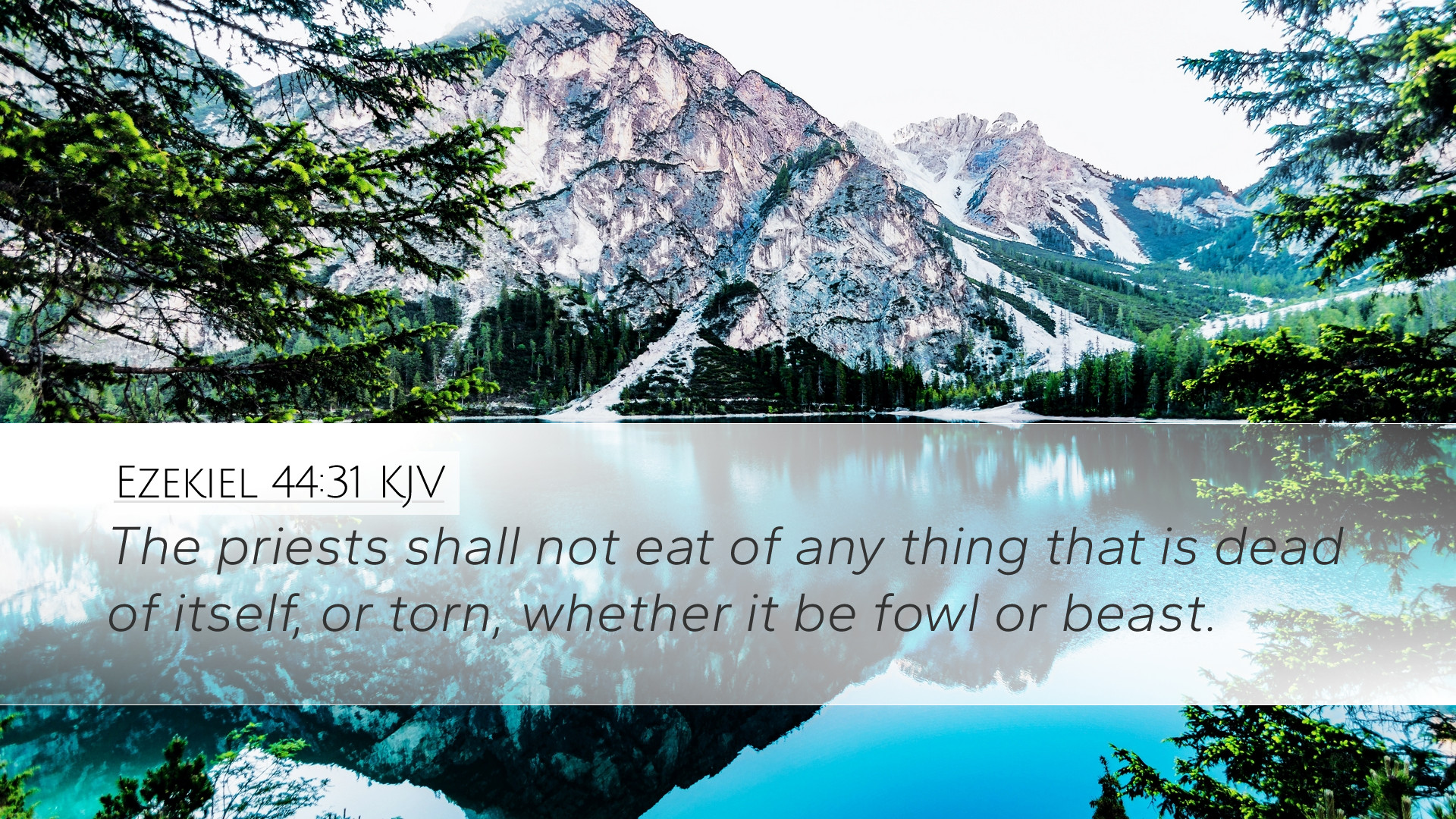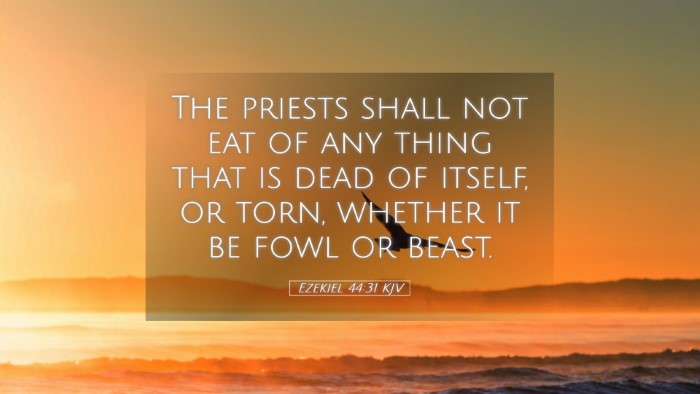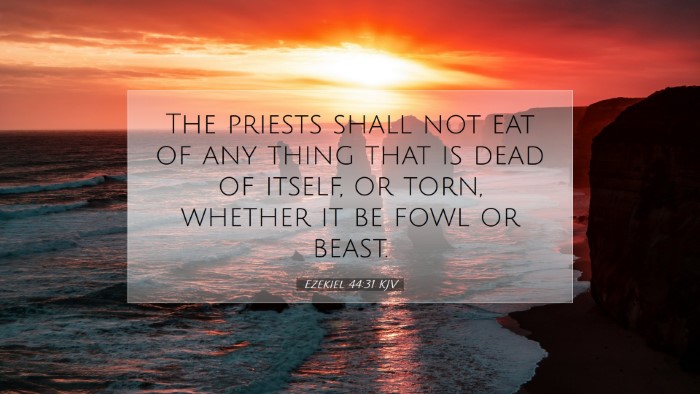Ezekiel 44:31 Commentary
Verse: Ezekiel 44:31 - "And the priests shall not eat of any thing that is dead of itself, or torn, whether it be fowl or beast." (KJV)
Introduction
This verse falls within a larger discourse where God outlines the qualifications and duties of the priests following the return of the exiles. In this context, the purity laws are reestablished, emphasizing the holiness required of those who serve in the temple. This commentary draws insights from public domain commentaries by Matthew Henry, Albert Barnes, and Adam Clarke, integrating their perspectives to explore the implications of this requirement for priests.
Aspects of Holiness in Ministry
The call to holiness among priests is significant. Matthew Henry notes that the priest's separation from defilement is essential for their service. The dietary laws serve as reminders of the purity required not only in physical sustenance but in the spiritual life of the priest.
Henry emphasizes that eating food that is unclean or improperly treated could taint the priest’s ability to perform sacred duties.
Interpretation of 'Dead of Itself' and 'Torn'
Albert Barnes elaborates on the significance of not consuming animals that have died of themselves or have been torn apart. These stipulations represent a deeper spiritual truth: they symbolize decay and are considered to lack the vibrant life necessary for offerings and sacrifices.
-
Dead of Itself:
Animals that have died naturally are considered unclean. The implication is that the priest, a mediatory figure, must embody life and vitality in service to God. Such animals do not meet the requirements of holiness.
-
Torn:
An animal torn by wild beasts symbolizes chaos and violence, characteristics that are antithetical to the peace and order that God desires in His sanctuary. This further conveys the notion that worship requires integrity and purity.
Spiritual Applications
Adam Clarke provides insight into how these ancient laws translate into contemporary Christian practice. The dietary laws remind believers of their separation from sin and the call to lead a life reflective of Christ's righteousness.
Clarke posits that just as the priests were to maintain dietary restrictions, Christians are urged to partake in spiritual nourishment that is pure and aligned with God's will.
-
Moral Integrity:
Just as priests had to avoid defilement from certain foods, believers today are called to avoid moral and spiritual decay. Engaging with 'torn' actions or 'dead' associations can hinder our relationship with God.
-
Spiritual Discipline:
There is a parallel to be drawn regarding the discipline of the Christian life, where adherence to God’s commands is seen as a pathway to vibrant spirituality.
Conclusion
In conclusion, Ezekiel 44:31 contains rich layers of meaning that extend beyond dietary laws. The holiness of the priestly role, the significance of purity, and the spiritual ramifications for today’s believer are paramount in understanding this passage. As pastors, students, theologians, and Bible scholars reflect on this verse, it is evident that God's call for holiness remains relevant. Embracing this call requires an ongoing commitment to live in alignment with God’s standards, ensuring that our worship is not only valid but also reflective of His glory.


